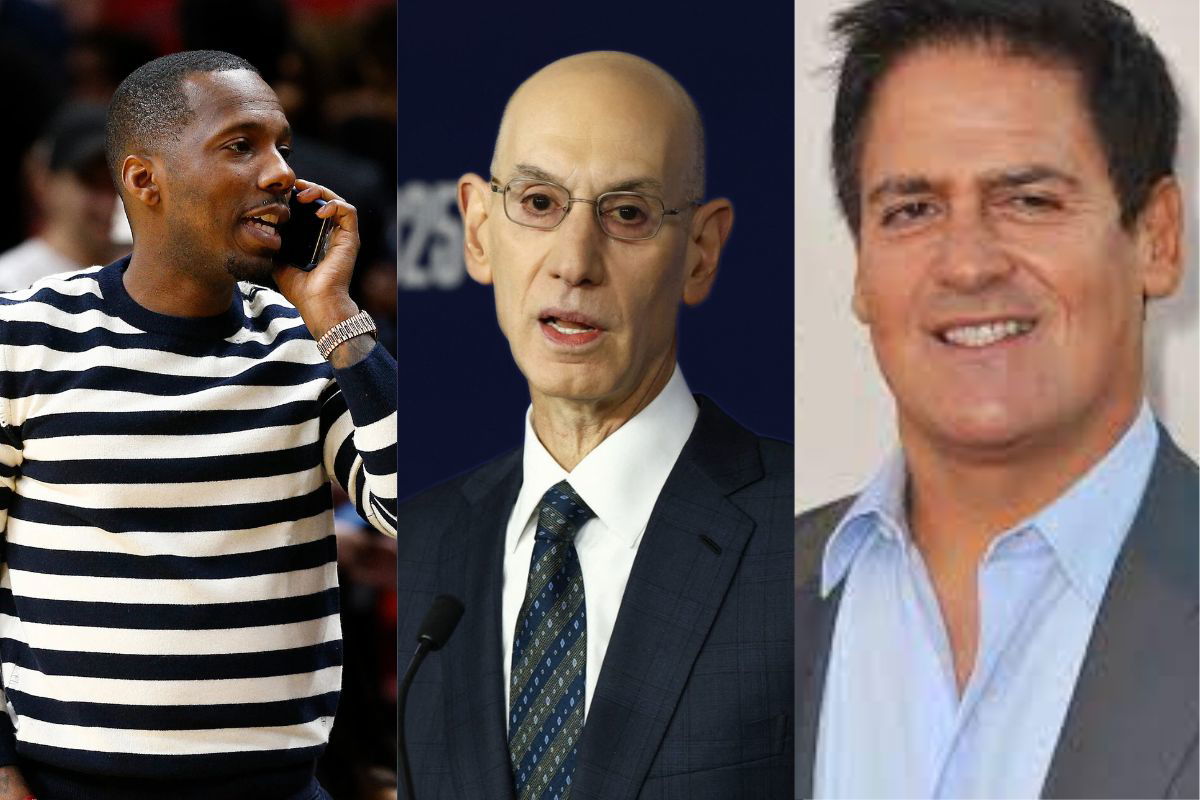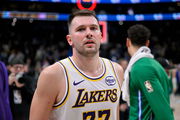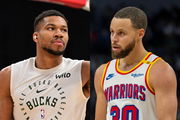

Just before the Phoenix Suns used their No. 10 pick in the 2025 NBA Draft, a startling clip surfaced showing Rich Paul on the phone with Suns owner Mat Ishbia, advising him to draft Khaman Maluach. Paul said, “If you guys keep 10, I’m going to mention a name,” naming Maluach by the end of the exchange. Ishbia responded positively, prompting Paul, again on the phone, to say, “Okay, done deal… let me make those calls so you can do what you need to do”. Moments later, the Suns selected Maluach at No. 10, raising immediate questions about the direct influence of a player agent mid-draft. What got pointed out was not just the phone conversation but also the broader context of Phoenix’s strategy.
Watch What’s Trending Now!
The pick followed a blockbuster trade sending Kevin Durant to Houston, a move clearly signaling the Suns’ turn toward youth and long-term upside. Selecting the 7’2″ South Sudanese center Maluach, a defensive-minded project with elite size and athleticism, fits that vision neatly. But what began as a routine basketball decision quickly escalated into a broader league controversy.
Analysts and insiders noted how the moment blurred the lines between influence and interference, especially in a league where power dynamics between agents, players, and front offices are already a point of tension. As discussion mounted, questions about competitive integrity, procedural transparency, and the limits of agent involvement gained renewed urgency. And amid that noise, one figure pushed beyond commentary and straight into urging intervention—Mark Cuban, who called for league intervention with a direct message aimed at the league’s highest office.
ADVERTISEMENT
Mark Cuban didn’t just react; he used Bill Simmons’ tweet about Ryan Nembhard as a springboard to expose a systemic flaw. Quote-posting Simmons, who was stunned Nembhard went undrafted before landing with Dallas on a two-way, Cuban wrote, “The @NBA should add 2 rounds. As you get into the 50s, agents start calling in a panic to get their guy drafted or in some cases telling teams not to draft their guy.” That second part is especially telling. Cuban is pointing to a draft-night maneuver where agents essentially tank their client’s value, not out of concern, but to steer them to a more favorable roster. It’s less about who’s earned a pick and more about who has the leverage to delay one. He followed that with a sharper truth.
The @Nba should add 2 rounds. As you get into the 50s, agents start calling in a panic to get their guy drafted or in some cases telling teams not to draft their guy, so he can go to a team they think is a better fit.
But once the last name is called, the real scramble starts.… https://t.co/4Pu2zI6qyD
— Mark Cuban (@mcuban) June 29, 2025
“Once the last name is called, the real scramble starts.” This isn’t just about paperwork, it’s about a midnight chase for talent. “It’s literally the hardest part of the draft because it’s a free for all,” he added. In those hours, front offices are burning up phones, agents are fielding parallel offers, and verbal agreements dissolve with a single better deal. Cuban’s own example, an agent committing at midnight, then texting a change at 2 a.m., isn’t just drama. It’s evidence of how little control teams really have once the formal rounds end. Sources like The Athletic and HoopsHype have long documented how undrafted free agency has become a battleground, especially with two-way slots now viewed as meaningful stepping stones rather than scraps.
ADVERTISEMENT
Cuban finished with a line that landed like a jab: “I proposed to go to 4 rounds as part of the last CBA. Per usual. They ignored me 😎.” That emoji doesn’t carry snark but marks a missed chance. Adding rounds isn’t just about more names; it’s about giving teams tools to operate with clarity, rather than scramble in the shadows. In light of what had just surfaced with Rich Paul, an agent shaping a pick in real time during the lottery.
The question now is: will Silver listen or brush it aside like countless draft controversies before? History says fans won’t hold back either way. Every year, the draft brings accusations of backroom deals and shady favoritism, and Silver’s name always gets dragged into the blame game. Booing the commissioner on draft night has practically become an NBA tradition, and in 2025, the chorus was just as loud.
ADVERTISEMENT
The tradition continues: Adam Silver booed at 2025 draft
The tradition lives on, and Adam Silver knows it well. As the NBA commissioner stepped onto the Barclays Center stage to open the 2025 Draft, a wall of boos instantly rained down. Moments later, when Silver returned to announce Cooper Flagg’s selection by the Dallas Mavericks, the chorus only grew louder.
The Brooklyn crowd made their stance crystal clear; they weren’t holding back. In fact, an ESPN mic even caught one fan shouting, “Dallas was rigged!” as Silver made his way out. It’s the kind of accusation that’s practically become background noise during draft night theatrics.
ADVERTISEMENT
This ritual of booing the commissioner isn’t new. The late David Stern, Silver’s legendary predecessor, used to absorb deafening jeers every year. Stern, ever the showman, would often lean into it, once quipping, “The boo is an American sign of respect.”
Top Stories
Ex-ESPN Anchor Calls Out a Hidden Caitlin Clark Problem Few Are Acknowledging

“Deserve Less Money”: Caitlin Clark, Angel Reese Rivalry Drives Strong WNBA Stance From Ex-Volleyball Player

NBA Announces Emergency Meeting With Cavs After Luka Doncic Injury: 3 Potential Fixes for Raised Court

“Kind of Scr—d Steph”: Insider Reveals Warriors Front Office’s Dirty Laundry Amid Giannis Trade Preparation

Caitlin Clark Fans Reignite Old Beef With Warriors’ Brandin Podziemski After Viral Moment

To be fair, what Stern endured back then makes today’s boos feel tame by comparison. Still, for Adam Silver, it’s part of the gig. When you’re the face of league decisions and conspiracy theories, the draft stage comes with built-in hecklers. And in the NBA, it’s as much a tradition as the picks themselves.
ADVERTISEMENT
ADVERTISEMENT
ADVERTISEMENT